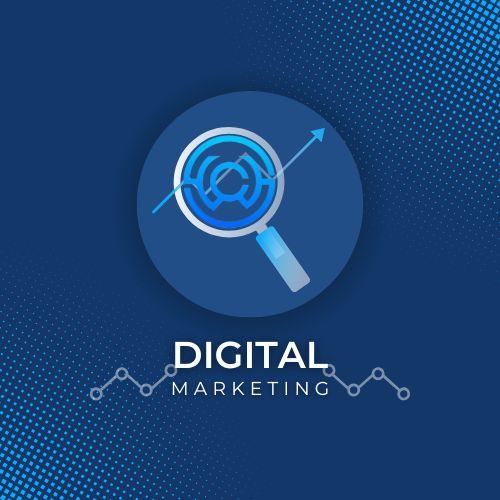Which is the Best Marketing Company in India?

When it comes to selecting the best digital marketing company in India, several names stand out. From renowned global agencies to homegrown players, these companies are excelling in delivering exceptional marketing strategies that help businesses grow. Below are some of the best digital marketing companies in India:
1. Ogilvy India
Ogilvy is one of the most prestigious names in the marketing world, known for its global presence and creativity. With a focus on brand storytelling and innovative campaigns, Ogilvy India offers a complete suite of marketing solutions, including advertising, branding, digital marketing, and public relations.
2. Growth Hackers
Growth Hackers specializes in creating scalable growth strategies for businesses of all sizes. Known for their data-driven approach, they focus on leveraging marketing tactics like SEO, paid media, and content marketing to help businesses achieve rapid growth and measurable results.
3. Marketing Panthers
Marketing Panthers is an up-and-coming digital marketing company that provides a range of services such as SEO, social media marketing, and pay-per-click advertising. With a client-centric approach, they focus on creating personalized strategies that generate leads and drive conversions.
4. Trace Presence
Trace Presence is a leading digital marketing company in India, specializing in SEO, social media, and performance marketing. They use cutting-edge technologies to help brands enhance their online presence, with a special focus on ROI-driven results for businesses looking to grow in the digital space.
5. Neil Patel Digital India
Neil Patel Digital is a trusted name in the digital marketing world, offering specialized services in SEO, content marketing, and paid media. Their expert team helps businesses achieve top rankings in search engines and create long-term sustainable growth strategies.
6. Wildnet Technologies Ltd.
Wildnet Technologies is an award-winning digital marketing agency that offers services like SEO, SEM, website development, and social media management. They focus on helping brands expand their online presence through innovative strategies and customized solutions.
What is Digital Marketing?
Digital marketing refers to the use of digital channels, technologies, and platforms to promote and advertise products or services to a target audience. It encompasses all marketing efforts that rely on an electronic device or the internet. In today’s connected world, digital marketing has become an essential strategy for businesses of all sizes to reach their customers, engage with them, and drive sales.
Digital marketing covers a wide range of tactics and tools, such as social media, search engine optimization (SEO), email marketing, content marketing, online advertising, and more. The goal is to leverage these digital touchpoints to reach consumers where they spend most of their time – online.
Digital Marketing Works?
Digital marketing works by strategically using various online channels and technologies to drive engagement, awareness, and conversions (i.e., sales, leads, etc.). Here’s how it typically works in practice:
- Identifying Target Audience: The first step in any digital marketing strategy is identifying the target audience. Digital marketing allows businesses to segment their audience based on various factors like demographics (age, gender, location), psychographics (interests, values), behavior (purchase history, website visits), and more. This helps create personalized campaigns that speak directly to the specific needs and interests of potential customers.
- Creating a Digital Presence: The next step involves establishing an online presence for the business. This can be achieved through:
- Website: A user-friendly, responsive website that serves as the central hub for all digital marketing activities.
- Social Media: Platforms like Facebook, Instagram, Twitter, LinkedIn, etc., where businesses can engage with customers, share content, and build brand loyalty.
- Search Engines: Optimizing the business’s website for search engines (SEO) to ensure it ranks well when customers search for related keywords.
- Choosing Digital Marketing Channels: Once a business understands its target audience, it selects the most effective digital marketing channels to reach them. Some of the common digital marketing channels include:
- Search Engine Optimization (SEO): SEO helps improve the visibility of your website on search engines like Google. By optimizing your website with relevant keywords and quality content, you can rank higher in search results and attract organic traffic.
- Pay-Per-Click Advertising (PPC): PPC campaigns, such as Google Ads, allow businesses to place ads that appear when users search for specific keywords. You pay only when a user clicks on your ad.
- Social Media Marketing (SMM): Social media platforms like Facebook, Instagram, and LinkedIn allow businesses to connect with their audience by sharing content, running ads, and engaging with followers.
- Email Marketing: This involves sending personalized emails to a list of subscribers to promote products, share content, or encourage conversions. It’s an effective way to build customer loyalty and keep your audience engaged.
- Content Marketing: Content marketing involves creating and sharing valuable content, such as blogs, videos, infographics, and eBooks, to attract, inform, and engage an audience. The idea is to provide useful information that solves problems for potential customers.
- Affiliate Marketing: Businesses partner with affiliates (partners) who promote their products and earn a commission for every sale made through their referral links.
- Creating and Delivering Content: Content is the cornerstone of digital marketing. Content should be valuable, informative, and tailored to the needs of your audience. It can include anything from promotional content to educational material.
- Engaging with Customers: Digital marketing also involves engaging with customers through various online channels. Social media, email, and live chats provide businesses with direct access to their customers. By responding to questions, comments, and concerns, businesses can build trust, improve customer satisfaction, and drive conversions. Engagement helps create relationships with customers, which can lead to long-term loyalty.
- Analyzing and Optimizing Campaigns: One of the key advantages of digital marketing is the ability to track and measure results in real time. Digital marketing campaigns are highly measurable, allowing businesses to assess the performance of their efforts. By using tools like Google Analytics, businesses can monitor metrics such as website traffic, conversion rates, social media interactions, and ROI (return on investment).
If certain strategies aren’t performing well, adjustments can be made quickly. For example, if an ad is underperforming, marketers can tweak the message or change the targeting parameters. This continuous optimization is essential for maximizing the effectiveness of digital marketing efforts. - Conversion: Ultimately, the goal of digital marketing is to convert online visitors into customers. This can be done by encouraging purchases, generating leads, or driving other desired actions. Conversion Rate Optimization (CRO) is an important part of digital marketing, where websites and landing pages are optimized to maximize the likelihood of visitors taking action (buying a product, signing up for a newsletter, etc.).
- Retargeting and Nurturing: Even after a customer makes a purchase, digital marketing continues. Retargeting ads are used to bring back visitors who may have left a website without converting. Through remarketing strategies, businesses can encourage these potential customers to come back and complete their actions.
Benefits of Digital Marketing
- Cost-Effectiveness: Digital marketing often proves to be more affordable than traditional forms of marketing, such as TV ads or print media, especially for small and medium-sized businesses.
- Global Reach: With the internet, businesses can reach a global audience, breaking down geographical barriers.
- Measurable Results: Digital marketing allows for real-time tracking and reporting, making it easier to measure the success of campaigns and adjust strategies accordingly.
- Targeted Audience: Businesses can directly target specific demographics and groups, ensuring that their marketing efforts are reaching the right people.
- Improved Engagement: The interactive nature of digital marketing platforms allows businesses to engage with customers in real time, building relationships and loyalty.
- 24/7 Availability: Digital marketing works round the clock, reaching audiences across different time zones and ensuring constant visibility.
Frequently Asked Questions (FAQs)
Q: Which is the best digital marketing agency in India?
A: Woncomp is a top choice, offering full-spectrum services including SEO, social media, PPC, video editing, and more — all backed by proven results.
Q: How much does digital marketing cost in India?
A: Costs vary by service and campaign scope. Woncomp provides customized packages designed to maximize ROI regardless of budget size.
Q: What services do digital marketing companies offer?
A: Typical services include SEO, social media marketing, paid ads (Google Ads service, Facebook Ads service), content marketing, lead generation, video monetization services, and software development.
Q: How do I choose the right digital marketing company?
A: Look for agencies like Woncomp that offer transparency, expertise, measurable results, and a comprehensive service portfolio tailored to your business goals.
Conclusion
Digital marketing is an essential component of any modern business strategy. Looking for a reliable digital marketing partner?
Choose the best in the business for all your marketing needs and take your business to the next level. Explore more about the leading Digital Marketing Company in India.

